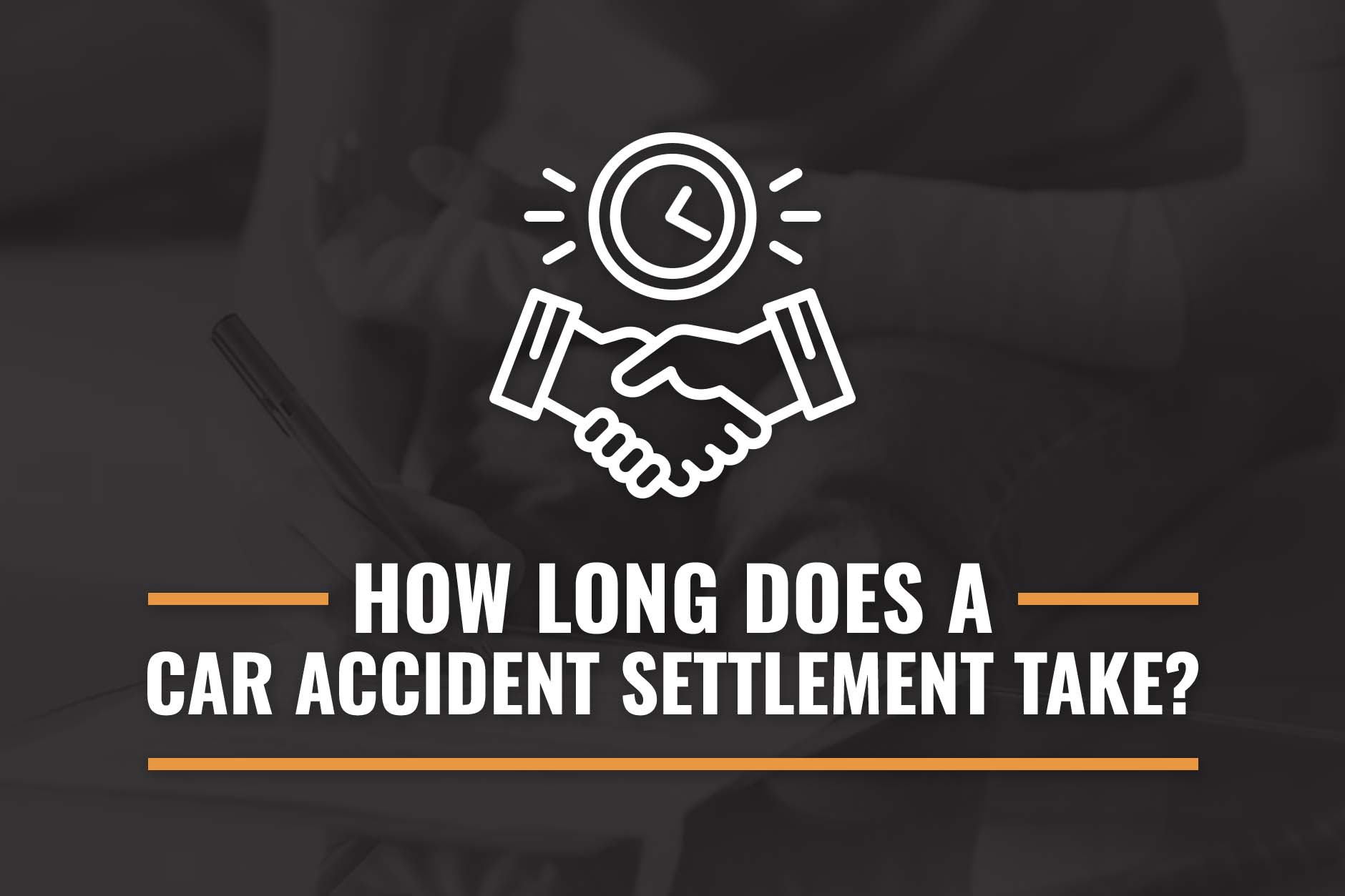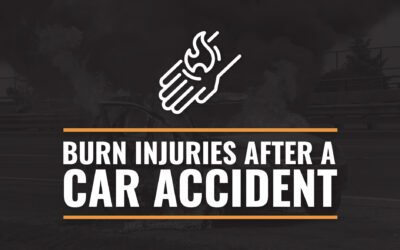
Table of Contents
You were stopped at a red light near Evergreen and 10 Mile in Southfield when a sudden jolt threw your coffee across the dashboard. The impact from behind was so strong it shook the entire car, leaving you disoriented and in pain. At the ER, doctors diagnosed you with a cervical strain and a possible herniated disc, which means you’re now facing weeks of physical therapy and follow-up appointments.
Now your vehicle is in the shop, you can’t work at your construction job, and each new envelope in the mail seems to bring another bill. As you try to recover and make sense of everything, one question keeps coming up: How long will it take to get a car accident settlement for your injuries?
Some cases are resolved in a few months, especially when there’s only vehicle damage or your injuries are minor. Others stretch on for a year or more, depending on how complicated things get. Michigan’s no-fault insurance system can speed up some claims, but it also adds extra steps when you’re badly hurt or need to file a personal injury lawsuit against another driver. In this guide, we’ll explain how car accident settlements typically unfold in Michigan and what can affect how long yours might take.
Michigan’s No-Fault Law: What You Need to Know
Michigan has a no-fault insurance system, which means your own insurance company is responsible for paying certain benefits after a car accident, regardless of who caused it. These benefits, which include medical expenses, lost wages, and replacement services, are called Personal Injury Protection (PIP) benefits. They are usually the first source of compensation for injured drivers and passengers.
Filing a claim for PIP benefits can progress quickly, especially if your injuries are minor and your insurer has no issue with your submitted documentation. In straightforward cases, payments for medical bills and wage loss may begin within a few weeks. But if your insurance company delays payment or disputes coverage, resolving the issue can take longer and may require legal action.
If your injuries are serious enough to meet Michigan’s legal threshold, you may be able to file a third-party claim against the at-fault driver. This type of claim seeks damages for pain and suffering, excess medical costs, and other out-of-pocket losses not covered by your PIP benefits. These claims tend to take longer, especially when insurance companies dispute fault or the extent of your injuries.
First Steps in a Michigan Car Accident Claim
Most claims start with getting medical treatment and reporting the crash to your insurance company. The sooner you begin treatment, the easier it is to document your injuries and connect them to the accident. Delayed care can give insurers a reason to question your claim or reduce their offer.
You’ll also want to gather supporting evidence, such as a police report, witness statements, and photos of the damage. This documentation can help speed up the claims process and make it easier for your car accident attorney to build a stronger case. Your attorney may also gather additional records or consult with medical professionals to support your claim and estimate future treatment costs.
At this stage, your insurance company might offer to settle your PIP claim. If you’re pursuing a third-party claim, your attorney may notify the other driver’s insurer and begin negotiations once your treatment has reached a stable point. This is referred to as reaching maximum medical improvement (MMI), which means your condition is unlikely to improve further with treatment.
How Long Do Insurance Companies Have to Respond in Michigan?
Michigan law gives insurance companies a certain amount of time to respond to claims. For PIP benefits, insurers must pay or deny a claim within 30 days of receiving reasonable proof of loss. If they miss this deadline without a valid reason, you may be entitled to penalty interest on the delayed amount.
Third-party insurers don’t have a fixed timeline, but they’re expected to act in good faith. Delays can happen when they dispute liability or argue that your injuries are pre-existing or unrelated to the crash. In some cases, they may ask you to attend an independent medical examination or provide additional records before making a decision.
If the insurer continues to delay or makes a low settlement offer, your personal injury attorney may file a lawsuit. Doing so doesn’t mean you’ll go to trial, but it can pressure the insurer to negotiate more seriously. Many cases settle after litigation begins, especially if the facts are clear and supporting evidence is strong.
Settling Before Filing a Lawsuit
Many car accident claims settle without a lawsuit. If liability is clear and your injuries are well documented, a settlement may happen within a few months. The average timeline for these claims is three to six months, although delays can occur if your medical treatment takes longer than expected.
It’s not a good idea to settle early if you’re still undergoing treatment. You may not know the full extent of your injuries or the cost of future care. Once you accept a settlement, you give up your right to pursue additional compensation, even if your condition worsens later.
Your attorney will want to wait until you’ve reached MMI before sending a demand letter. This document outlines your injuries, treatment, medical expenses, lost income, and any other losses. The insurance company will review the demand and either accept, reject, or make a counteroffer based on its assessment of your claim.
What Happens After Filing a Car Accident Lawsuit?
If settlement talks break down, your attorney may file a lawsuit in the appropriate Michigan court. Litigation doesn’t always lead to trial, but it adds more time to the case and introduces formal procedures like filing a claim with the court, exchanging evidence, and preparing motions.
- Filing the Complaint: The complaint is the official start of your lawsuit. Your attorney prepares and files this document with the court, laying out the legal basis of your claim and the compensation being sought. Once served, the defendant typically has around 21 to 28 days to file an answer, depending on how and where they were served.
- The Discovery Phase: Discovery is when both sides exchange information to support or challenge the claims being made. This includes written questions (interrogatories), document requests, and depositions where witnesses are questioned under oath. Discovery often lasts several months and can be delayed if either side resists turning over information or asks the court to limit access to certain records.
- Filing Motions: During litigation, either party may file motions asking the court to decide legal issues before trial. Common motions include requests to dismiss the case, suppress evidence, or compel discovery responses. Michigan courts may also require both sides to participate in mediation or case evaluation to try to resolve the case before moving to trial.
- Trial: If settlement efforts fail, the case moves to trial. This is the final phase, and while it’s rare, it can happen when liability or damages are strongly disputed. Getting to trial may take a year or longer, depending on how busy the court’s docket is and how quickly both sides complete earlier stages of the case.
What Factors Affect the Settlement Timeline?
No two claims are exactly alike, and the amount of time it takes to reach a resolution comes down to the severity of your injuries, the quality of your evidence, and how cooperative the insurance company is. Below are some of the factors that can influence how long your case might take:
- Severity of Injuries: More serious injuries take longer to treat and assess. It can take months to reach maximum medical improvement, which delays the point at which your attorney can present a full and accurate demand for compensation.
- Disputes Over Fault: If the insurance company questions who caused the accident, they may delay the claim while gathering more evidence. This can include reviewing police reports, interviewing witnesses, or even hiring accident reconstruction specialists.
- Medical Documentation: Incomplete or inconsistent medical records can slow everything down. Gaps in treatment, missing paperwork, or delays in communication from your healthcare provider may cause the insurer to challenge your claim.
- Insurance Company Response: Some insurers are quicker to evaluate and negotiate claims, while others take a more aggressive approach and delay responses. Internal policies, adjuster caseloads, and risk tolerance all play a role in how fast they act.
- Court Schedules: If a lawsuit is filed, the pace of the court system becomes a factor. Trial dates depend on the court’s calendar, and delays are common if the docket is backed up or if there are motions that must be resolved before trial.
- Available Evidence: Strong evidence speeds things up. If your attorney has access to clear photos, timely medical records, and detailed witness statements, it reduces the chance of disputes and helps move the case forward faster.
A clear claim with strong documentation normally settles faster than one with disputed facts or unclear injuries. Working closely with your attorney helps ensure that everything is in place when negotiations begin.
Be Careful About Deadlines!
Michigan law gives you a limited window to file a lawsuit. For third-party injury claims, the statute of limitations is generally three years from the date of the accident. That means if you don’t file a lawsuit within three years, the court will likely dismiss your case, and you’ll lose the chance to recover compensation for pain and suffering, excess medical costs, or lost income not covered by your no-fault benefits.
The deadline for no-fault or Personal Injury Protection (PIP) claims is even shorter. Under Michigan law, you must file a lawsuit for unpaid or overdue PIP benefits within one year of when the insurer either refuses to pay or fails to act. If that year passes without filing suit, you can’t force the insurer to pay, even if the benefits would have been valid. This one-year time limit is strictly enforced, and missing it could mean walking away from thousands of dollars in medical bills, lost wages, or replacement service benefits.
These time limits apply even if you’re still recovering from your injuries. It’s not uncommon for people to delay legal action because they’re waiting to feel better, assuming there’s plenty of time. But waiting too long can severely limit your options and weaken your claim, especially if key documents are missing or witnesses become harder to reach. Speaking with an attorney soon after the accident helps protect your right to compensation and ensures that deadlines are met.
What You Can Do to Help the Process
While many parts of the settlement timeline are out of your control, there are several steps you can take to keep things moving. The more proactive and prepared you are, the easier it is to present a strong and timely claim.
- Follow Your Treatment Plan: Attend all scheduled appointments and follow your doctor’s recommendations. Gaps in care or skipped visits can lead the insurance company to question how serious your injuries are or whether they’re related to the accident.
- Keep Detailed Records: Save medical bills, insurance letters, prescription receipts, and any documents related to your treatment or recovery. Organized records make it easier for your attorney to build a complete and accurate case.
- Respond Promptly to Your Attorney: If your lawyer asks for documents, updates, or responses, try to provide them as soon as possible. Delayed communication can slow down negotiations or leave your attorney unprepared for time-sensitive decisions.
- Share New Information Quickly: If you get a letter from the insurance company or a change in your medical condition occurs, let your attorney know right away. Timely updates help them stay ahead of potential issues and adjust your case strategy if needed.
- Be Honest and Thorough: Tell your attorney everything, even if it seems minor. Leaving out details about previous injuries, unrelated medical issues, or lost wages could lead to disputes or lower settlement offers later.
It’s natural to want a quick resolution, but rushing can lead to mistakes or an undervalued settlement. Staying informed about the process and trusting your legal team helps you make better long-term decisions.
Speak to a Michigan Car Accident Attorney Today
There’s no set time for a car accident settlement in Michigan. Some cases resolve quickly, while others take time to gather evidence, complete treatment, and negotiate with insurers. Filing a lawsuit may add months, but it can also increase the likelihood of a fair result.
The best way to protect your interests is to speak with an attorney early and follow through with your treatment. With strong evidence and skilled legal representation, you’ll be in a better position to move your case forward. If you were injured in a crash and want help understanding your options, LegalGenius in Southfield can review your case and explain the next steps. To learn more or schedule a no-obligation consultation, fill out our Ask the Genius™ form or call 1-800-209-4000 today.

Attorney Jeffrey Perlman
Attorney Jeffrey Perlamn is the managing partner at LegalGenius, PLLC. He has helped Metro Detroit accident victims recover the compensation they deserve for over 35 years. He believes everyone should have access to justice and the legal system, which is why Attorney Perlman spends his time outside of the courtroom writing informational blogs on the LegalGenius website that are accessible to all.


